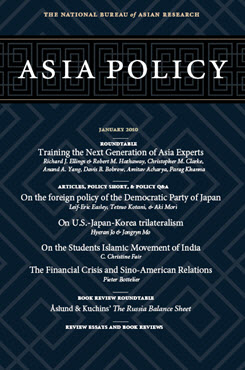Students Islamic Movement of India and the Indian Mujahideen
An Assessment
This essay assesses the organization, ideology, and membership of the Students Islamic Movement of India (SIMI) and the Indian Mujahideen (IM), as well as India’s ability to contend with this domestic security threat.
EXECUTIVE SUMMARY
This essay assesses the organization, ideology, and membership of the Students Islamic Movement of India (SIMI) and the Indian Mujahideen (IM), as well as India’s ability to contend with this domestic security threat.
MAIN FINDINGS
- SIMI emerged as a student wing of the Jamaat-e-Islami-i-Hind (JIH) in 1977. It remains unclear when IM broke from SIMI or if IM has simply appropriated the militant elements of SIMI.
- Though IM recruits tend to be lower- and middle-class Muslims that are disaffected by Hindu nationalism, as well as those offended by Western values and polytheism, IM also claims leaders and cadres from professional backgrounds, especially from the IT sector.
- SIMI/IM has endorsed the goals of Osama bin Laden and seeks redress for violence against Indian Muslims, as well as recourse for the deprivation of socio-economic opportunities for India’s Muslim community.
- SIMI/IM has long-standing ties to global Islamist organizations, including Lashkar-e-Taiba (LeT) and Harkat-ul-Jihad-Islami (HUJI), and mafia as well as Pakistani intelligence agencies and other criminal and militant organizations beyond India.
POLICY IMPLICATIONS
- An exact rendering of terrorist acts attributable to SIMI/IM is difficult because the Indian press tends to blame LeT for most attacks in India. This is likely due to India’s reticence to acknowledge an indigenous threat, as well as its political interest in attributing India’s domestic security challenges to Pakistan.
- India’s internal security will continue to be fraught, owing to the ongoing support from Pakistan for a variety of militant groups operating in India from Pakistan. India’s internal security situation is deeply problematic, riven by interagency discord, pervasive corruption, and a lack of political will to make changes required to protect the citizenry.
- Given the pervasive social inequity of India’s Muslim population, the internationalization of jihadist groups operating in the guise of social justice, and India’s domestic barriers to developing a robust internal security apparatus, India’s citizenry will remain vulnerable, as will other domestic and international terrorism targets within India.
About Asia Policy
Asia Policy is a peer-reviewed scholarly journal presenting policy-relevant academic research on the Asia-Pacific that draws clear and concise conclusions useful to today’s policymakers. Asia Policy is published quarterly in January, April, July, and October and accepts submissions on a rolling basis. Learn more


